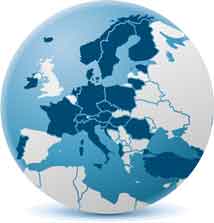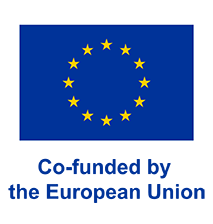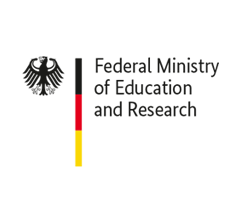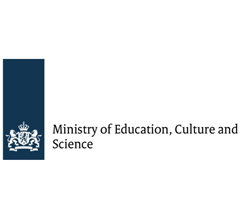Select Topic
- A. Demographics
- B. Transition and access
- C. Types and modes of study
- D. Socio-economic background
- E. Housing situation
- F. Students’ expenses
- G. Students’ resources
- H. Employment and time budget
-
I. International student mobility
- Activity abroad
-
Enrolment abroad
- Shares and modes
- Funding
- Destination country
- Obstacles
-
Obstacles: Students who do not plan an enrolment abroad
- Insufficient skills in foreign language
- Lack of information provided by home institution
- Separation from partner, children, friends
- Additional financial burden
- Loss of paid job
- Lack of motivation
- Low benefit for my studies at home
- Difficult integration of enrolment abroad into the structure of my home study programme
- Problems with recognition of credits gained abroad
- Problems with access regulations at country of destination
- Limited admittance to mobility programmes
- My health/disability
-
Obstacles: Students who have a concrete plan for an enrolment abroad
- Insufficient skills in foreign language
- Lack of information provided by home institution
- Separation from partner, children, friends
- Additional financial burden
- Loss of paid job
- Lack of motivation
- Low benefit for my studies at home
- Difficult integration of enrolment abroad into the structure of my home study programme
- Problems with recognition of credits gained abroad
- Problems with access regulations to the country of destiantion
- Limited admittance to mobility programmes
- My health/disability
-
Obstacles: Students who plan an enrolment abroad, but have no concrete plans yet
- Insufficient skills in foreign language
- Lack of information provided by home institution
- Separation from partner, children, friends
- Additional financial burden
- Loss of paid job
- Lack of motivation
- Low benefit for my studies at home
- Difficult integration of enrolment abroad into the structure of my home study programme
- Problems with recognition of credits gained abroad
- Problems with access regulations to the country of destiantion
- Limited admittance to mobility programmes
- My health/disability
-
Obstacles: Students who have been enrolled abroad
- Insufficient skills in foreign language
- Lack of information provided by home institution
- Separation from partner, children, friends
- Additional financial burden
- Loss of paid job
- Lack of motivation
- Low benefit for my studies at home
- Difficult integration of enrolment abroad into the structure of my home study programme
- Problems with recognition of credits gained abroad
- Problems with access regulations to the country of destiantion
- Limited admittance to mobility programmes
- My health/disability
- 5 most frequently named countries (names)
- 5 most frequently named countries (shares)
- Language proficiency
- J. Assessment of studies
Select focus group
Select Eurostudent Wave
EUROSTUDENT DATABASE
The database provides key indicators on all topics covered by the EUROSTUDENT survey, for all participating countries.
To browse through the database, please select (on top):
- an indicator within "TOPICS",
- an indicator of the "FOCUS GROUPS" to cross the data,
- at least one of the "COUNTRIES". By default, all Eurostudent 8 countries are selected.
Furthermore, it is possible to switch between current data of the eighth EUROSTUDENT ROUND (2021-2024) to data of the seventh (2018-2021), the sixth (2016-2018), or the fifth (2012-2015) round, if the respective indicators have been used at the time. When switching between rounds, your last country selection is automatically retained, but you can adjust it by clicking on "COUNTRIES".
In addition to the charts and tables with detailed results, you can find (thematic) reports and other publications providing interpretations of several topics at the EUROSTUDENT website.
If you have questions or remarks regarding the EUROSTUDENT database, please feel free to contact us via eurostudent@ihs.ac.at
The database allows you to look at the average of the entire EUROSTUDENT population of the respective countries selected by choosing the focus group "all students". This helps you to identify and compare the general overall trends at a national level. It is, however, also possible to select and compare so-called "focus groups" of students for all indicators. These focus groups are based on the main characteristics of students and their study and living situation.
The database supports cross-country comparisons for both - all students or specific focus groups. Please note, however, that the data visualisation (in charts) has its limitations and if too many countries have been selected at once, viewing and interpreting of the figure might become difficult.
For each country, deviations from the EUROSTUDENT conventions reported by the national research team (such as different wording in the questionnaire, splitting of categories, changes in data cleaning etc.) are noted at the bottom of each page ("country deviation") using separate tabs for the countries selected. Please read them carefully for a meaningful data interpretation. For more information on the general definition and national deviations from the EUROSTUDENT target group conventions, please check > Methodological notes. Be aware that these methodological notes may differ in certain aspects between the different rounds of EUROSTUDENT that can be selected.
All data is available for download. In order to download and save your current selection (specific indicators, countries and focus groups) as a MS Excel, please use the download option at the bottom of each table.
EUROSTUDENT VII target group
The EUROSTUDENT VII target group comprises all students who are – at the time of observation (usually: semester) – enrolled in any national study programme regarded as higher education in a particular country. As a rule, this corresponds to ISCED levels 5, 6, and 7.
This means all students should be included, regardless of
- nationality – national and foreign students should be included, as long as they are studying for a full degree in the country of observation (and not only obtaining a limited number of credits, e.g. as an Erasmus student)
- full-time/part-time status – full-time, part-time and/or correspondence students should be included as long as the study programmes in which they are enrolled offer a minimum of physical, face-to-face interaction in lectures/classes (not only exams)
- character of the HEI or study programme – general as well as professional orientations of HEIs and study programmes should be included, as long as the programmes and institutions are considered to be higher education in the national context
- legal character of the HEI – public and private institutions should be included, as long as private institutions are considered to be a regular part of the HE system in the national context
Excluded from the EUROSTUDENT VII target group are
- students on (temporary) leave, i.e. students who have officially or non-officially uninterrupted their studies at the time of observation for whatever reason
- students on credit mobility, short-term mobile students (e.g. Erasmus students), i.e. students who are currently studying in the country of observation (incoming) or who have currently left the country of observation (outgoing) for a short time period (e.g. one or two semesters) with the purpose of gaining only a relatively small number of credits
- students in ISCED 8 study programmes (PhD and doctoral programmes)
- students in distance learning study programmes that do not offer any physical, face-to-face lecture period, but are solely based on written/online interaction (apart from exams)
- students at very specialised HEIs, e.g. military or police academies, or HEIs directly affiliated with one company. This might also include programmes providing training for public administration only
- students in programmes classified as ISCED (2011) levels 5 or 6, which are not regarded as higher education in the national context. This could encompass, for example, further vocational training programmes for master crafts(wo)men, upper-secondary schools, or post-secondary programmes not regarded as higher education
- students enrolled in higher education but not entitled to finish a regular programme. These may be students with an ‘extra-ordinary’ or ‘guest’ status, or students only enrolled in single courses if they are not allowed to graduate from an entire, ordinary programme (i.e. their achievements will not be recognised for a common title like Bachelor or Master)
Notes on national samples and deviations from the EUROSTUDENT VII standard target group
Not all countries were able to fully comply with the standard target groups. The following list provides additional information on the national samples and indicated deviations from the EUROSTUDENT conventions (see above).
Austria (AT) Short national degrees, ‘other’ postgraduate degrees and ‘other’ degrees (e.g. single subjects) do not exist in Austria. Short-cycle programmes are not considered to be higher education and are therefore not included in the sample.
Switzerland (CH) According to the Swiss ISCED Mapping, professional higher education is defined as educational programmes on the tertiary level that are designed for students to acquire the practical/technical/occupationally specific/entrepreneurial skills and knowledge needed for employment in a particular occupation with high levels of expertise and/or managerial responsibility, or for entry into a profession with high skill requirements. Professional programmes are typically provided by institutions or enterprises outside the university context and are designed for direct entrance into the labour market or are linked to existing employment. Therefore, these programmes are not included in the sample of the survey.
Czech Republic (CZ) Short-cycle programmes, short national degrees, ‘other’ postgraduate degrees, and ‘other’ degrees (e.g. single subjects) are not included in the sample as they do not exist in the Czech higher education system.
Denmark (DK) Short national degrees, long national degrees, and ‘other’ degrees (e.g. single subjects) are not included in the sample as they do not exist or constitute a neglible group not considered to be higher education. Part-time studies were only introduced in 2017 in a pilot scheme for Master programmes (erhvervskandidatuddannelse), on special terms for people in parallel employment. As the first students in such programmes started in September 2018, part-time students only make up a very minor part of the student population and were thus not included in the sample.
Estonia (EE) Short-cycle programmes, ‘other’ degrees (e.g. single subjects), short national degrees, and ‘other’ postgraduate degrees are not included in the sample as they do not exist or are not considered to be higher education.
Finland (FI) The sample consists of BA (ISCED 6), MA (ISCED 7), and Licenciate of Medicine (ISCED 7) degrees. Other degree programmes do not exist or are not considered to be higher education.
France (FR) No relevant deviation/specifications.
Georgia (GE) Universities of applied sciences do not exist in Georgia. Data provided for the group ‘non-universities’ in the EUROSTUDENT context refer to teaching universities and colleges. Teaching universities deliver only BA and MA-level programmes (no doctoral programmes); colleges run only BA programmes. No distinction is made between full- and part-time students.
Croatia (HR) Students on short-cycle programmes, BA, MA and integrated BA+MA are included in the sample in the proportion in which they are represented in the population. ‘Other’ postgraduate degrees do not exist.
Hungary (HU) Short national degrees, ‘other’ degrees (e.g. single subjects), and ‘other’ postgraduate degrees don’t exist in Hungary.
Ireland (IE) Long national degrees do not exist in Ireland. ‘Other’ degrees (e.g. single subjects) are not included in the sample. No private institutions are included in the sample. This constitutes a deviation from the EUROSTUDENT target group!
Iceland (IS) No non-universities exist in Iceland.
Italy (IT) No non-universities exist in Italy. State and non-state universities are included in the survey. Post graduate programmes ISCED 7 with professional orientation (master universitario di primo livello) are not included in the survey. International students are not included in the sample. This constitutes a deviation from the EUROSTUDENT target group!
Lithuania (LT) Short-cycle degrees, short national degrees, long national degrees, ‘other’ degrees (e.g. single subjects), and ‘other’ postgraduate degrees are not included in the sample as they do not exist or are not considered to be higher education.
Luxembourg (LU) The sample includes short-cycle degrees (brevet de technician supérieur, ISCED 5), BA degrees (ISCED 6), and MA degrees (ISCED 7). Other degree programmes do not exist or are not considered to be higher education.
Malta (MT) ‘Other’ degrees (e.g. single subjects) are not included in the sample as they are not considered to be higher education.
The Netherlands (NL) Long national degrees and ‘other’ postgraduate degrees are not included in the sample as they do not exist or are not considered to be higher education. ‘Other’ degrees (e.g. single subjects) are not included in the sample. No private institutions are included in the sample due to the negligible size of the sector.
Norway (NO) Short-cycle programmes are not included in the sample as they are not considered to be higher education. ‘Other’ postgraduate degrees are not included in the sample as they do not exist or are not considered to be higher education.
Poland (PL) Short-cycle programmes, short national degrees, and ‘other’ degrees (e.g. single subjects) are not included in the sample as they do not exist or are not considered to be higher education. ‘Other’ postgraduate degrees are not included in the sample. This constitutes a deviation from the EUROSTUDENT target group!
Romania (RO) No non-universities exist in Romania. Short national degrees, ‘other’ degrees (e.g. single subjects), and ‘other’ postgraduate degrees are not included in the sample as they do not exist, are not considered to be higher education, or constitute a negligible group.
Sweden (SE) No non-universities exist in Sweden.
Slovenia (SI) ‘Other’ postgraduate degrees do not exist in Slovenia.
Turkey (TR) Short national degrees, ‘other’ postgraduate degrees, and ‘other’ degrees are not included in the sample as they do not exist or are not considered to be higher education. Part-time studies do not exist. Higher education institutions are distinguished by ‘public’ and ‘private’ status. Data shown for ‘non-universities’ refer to private institutions.
Further information can be found in the comprehensive EUROSTUDENT VII Synopsis of Indicators (methodological notes are covered in chapter A3).
Composition of students' total monthly income
Monthly income including transfers in kind / Arithm. mean
Data source: EUROSTUDENT VII
Focus Group: Age group
Chart
Mean: National public student support
Mean: Self-earned income
Mean: Student support from non-country sources (cash only)
Mean: Family/partner contribution
Table (split by focus group items)
| Country | Mean: Family/partner contribution | Mean: Student support from non-country sources (cash only) | Mean: Self-earned income | Mean: National public student support | Mean: Income from other sources | |||||
|---|---|---|---|---|---|---|---|---|---|---|
| NO | 1,953.0 | NCU | 0.0 | NCU | 3,455.3 | NCU | 7,282.1 | NCU | 214.5 | NCU |
| Country | Mean: Family/partner contribution | Mean: Student support from non-country sources (cash only) | Mean: Self-earned income | Mean: National public student support | Mean: Income from other sources | |||||
|---|---|---|---|---|---|---|---|---|---|---|
| NO | 1,664.9 | NCU | 21.4 | NCU | 4,808.9 | NCU | 7,319.8 | NCU | 334.0 | NCU |
| Country | Mean: Family/partner contribution | Mean: Student support from non-country sources (cash only) | Mean: Self-earned income | Mean: National public student support | Mean: Income from other sources | |||||
|---|---|---|---|---|---|---|---|---|---|---|
| NO | 2,081.7 | NCU | 46.7 | NCU | 8,115.1 | NCU | 6,233.0 | NCU | 733.5 | NCU |
| Country | Mean: Family/partner contribution | Mean: Student support from non-country sources (cash only) | Mean: Self-earned income | Mean: National public student support | Mean: Income from other sources | |||||
|---|---|---|---|---|---|---|---|---|---|---|
| NO | 3,347.0 | NCU | 23.4 | NCU | 19,845.8 | NCU | 3,128.7 | NCU | 1,616.9 | NCU |
Technical notes
Contribution from family/partner: Money which students receive from their parents, other relatives, employers, or the person they are sharing their life with including transfers in kind. Self-earned income/own earnings: All self-earned income from paid jobs, including savings from self-earned income. National public student support: Monetary support from the state, especially designed for students in HE. This includes grants, loans, and scholarships. Other national public support: General monetary support from the state which is under certain conditions also available for students in HE. It includes, for instance, child benefits and housing allowance. Support from non-country sources: public or private support from abroad or international entities (e.g. the EU). Incl. transfers in kind: Transfers in kind are any costs that are paid by others (parents/partner/employer or others) and not by the students themselves. Payments go directly to the students’ creditors, i.e. the respective money is intangible for the students.
Country-specific information
Country deviation
Please be aware of the definition of the target population of EUROSTUDENT and respective
general deviations of the national samples
(see methodological notes for detailed information).



